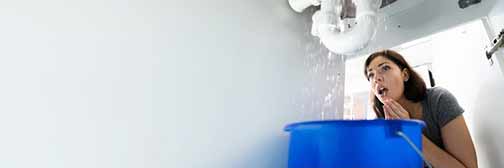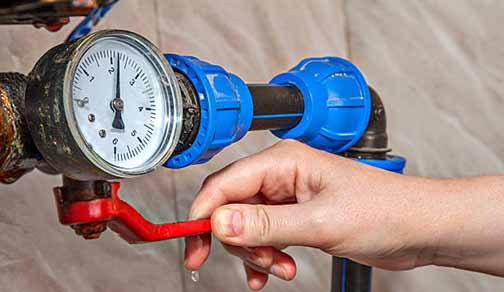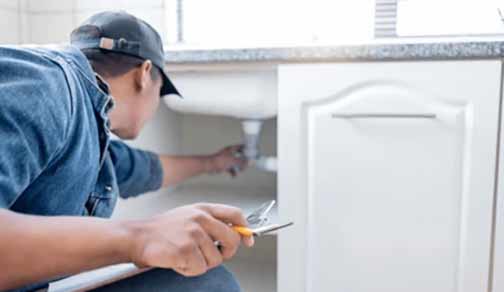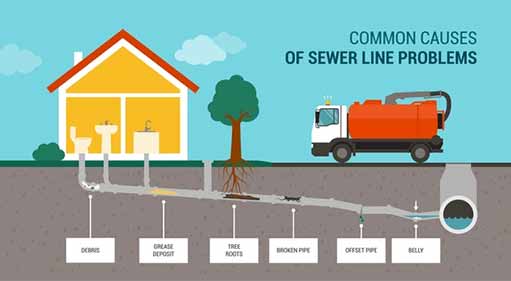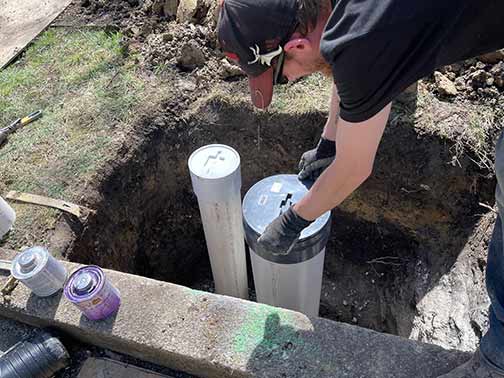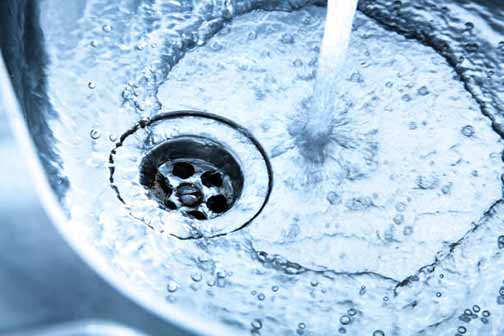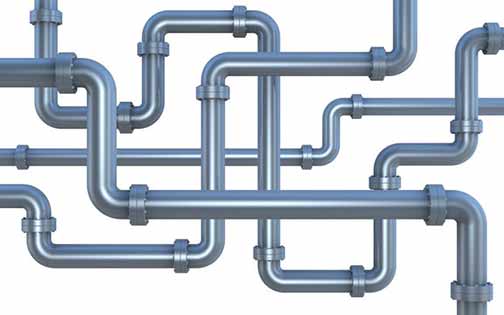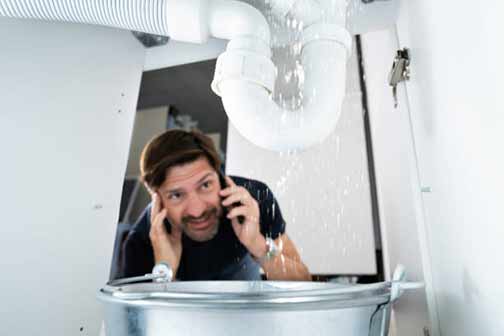Understanding the Role of Plumbing in Property Valuation
When it comes to real estate appraisals, plumbing systems play a crucial role in determining the overall value of a property. A well-maintained and efficient plumbing system can significantly enhance a property’s market value, while outdated or faulty plumbing can detract from it. Below we will get into the various ways plumbing impacts property valuation, emphasizing the importance of thorough plumbing assessments during real estate appraisals.
The Impact of Plumbing on Property Value
Plumbing is one of the essential systems in any property, and its condition can have a substantial impact on property value. A modern, efficient plumbing system can increase a property’s appeal to potential buyers, leading to higher offers. Conversely, plumbing issues such as leaks, clogs, or outdated pipes can be red flags for buyers, potentially lowering the property’s market value.
Several factors contribute to the impact of plumbing on property value, including:
- Age of the Plumbing System: Older plumbing systems are more prone to issues and may require costly repairs or replacements. Buyers are often wary of properties with aging plumbing, which can negatively affect the property’s value.
- Quality of Materials: The materials used in a property’s plumbing system can influence its longevity and performance. High-quality materials such as copper or PEX piping are more durable and less likely to cause problems, positively impacting property value.
- Maintenance History: A well-maintained plumbing system indicates that the property has been cared for, which can be a significant selling point for buyers. Regular maintenance and timely repairs can help preserve the plumbing system’s condition and, consequently, the property’s value.
- Water Efficiency: Modern plumbing systems designed for water efficiency can be attractive to environmentally conscious buyers. Features such as low-flow fixtures and water-saving appliances can enhance a property’s appeal and value.
The Importance of Plumbing Assessments in Real Estate Appraisals
Given the significant impact of plumbing on property value, it is essential to conduct thorough plumbing assessments during real estate appraisals. These assessments help identify any existing or potential plumbing issues that could affect the property’s market value. By addressing these issues, sellers can enhance their property’s appeal and ensure a fair appraisal.
Plumbing assessments typically involve the following steps:
- Visual Inspection: A visual inspection of the plumbing system can reveal obvious signs of wear and tear, such as leaks, corrosion, or outdated fixtures. Inspectors will check the condition of pipes, faucets, toilets, and other plumbing components.
- Water Pressure Testing: Water pressure testing helps determine if the plumbing system is operating efficiently. Low water pressure can indicate underlying issues such as clogs, leaks, or problems with the water supply.
- Leak Detection: Identifying and addressing leaks is crucial for maintaining the plumbing system’s integrity. Plumbers use specialized equipment to detect hidden leaks in your plumbing that may not be visible during a visual inspection.
- Sewer Line Inspection: The condition of the property’s sewer line is an important aspect of the plumbing assessment. Plumbers may use cameras to examine the sewer line for blockages, cracks, or other issues that could affect the property’s value.
Common Plumbing Issues That Affect Property Valuation
Several common plumbing issues can negatively impact property valuation. Identifying and addressing these issues before putting a property on the market can help ensure a more accurate appraisal and potentially higher offers from buyers. Some of the most common plumbing issues include:
- Leaky Faucets and Pipes: Leaks can cause water damage, mold growth, and increased water bills. Buyers are often deterred by properties with leaks, as they may require costly repairs.
- Clogged Drains and Sewer Lines: Clogs can lead to slow drainage, unpleasant odors, and potential sewage backups. These issues can be a major turn-off for buyers and negatively impact property value.
- Outdated Plumbing Fixtures: Old or inefficient fixtures can make a property appear dated and less appealing to buyers. Upgrading to modern, water-efficient fixtures can enhance the property’s value.
- Corroded or Damaged Pipes: Corrosion and damage to pipes can lead to leaks, reduced water quality, and potential health hazards. Replacing damaged pipes can improve the plumbing system’s reliability and boost property value.
- Poor Water Pressure: Low water pressure can be a sign of underlying plumbing issues and can negatively impact the property’s appeal. Ensuring adequate water pressure is essential for maintaining property value.

Modern, energy-efficient water heaters can provide reliable hot water while reducing energy costs. Tankless water heaters, in particular, are popular among buyers for their efficiency and space-saving design.
Enhancing Property Value Through Plumbing Upgrades
Investing in plumbing upgrades can be a smart strategy for homeowners looking to enhance their property’s value. Upgrading the plumbing system can improve the property’s functionality, appeal, and marketability. Some effective plumbing upgrades include:
- Replacing Old Pipes: Upgrading to modern piping materials such as PEX or copper can improve the plumbing system’s durability and performance. This upgrade can also prevent future leaks and reduce maintenance costs.
- Installing Water-Efficient Fixtures: Water-efficient fixtures, such as low-flow toilets, faucets, and showerheads, can reduce water consumption and lower utility bills. These features are attractive to environmentally conscious buyers and can enhance property value.
- Upgrading Water Heaters: Modern, energy-efficient water heaters can provide reliable hot water while reducing energy costs. Tankless water heaters, in particular, are popular among buyers for their efficiency and space-saving design.
- Adding a Water Filtration System: Installing a water filtration system can improve water quality and appeal to health-conscious buyers. This upgrade can be a significant selling point and boost property value.
- Improving Drainage Systems: Ensuring proper drainage around the property, such as installing a French drain, can prevent water damage and foundation issues. Upgrading drainage systems can protect the property’s structural integrity and enhance its value.
The Role of Professional Plumbers in Real Estate Transactions
Professional plumbers play a vital role in real estate transactions by conducting thorough plumbing assessments and addressing any issues that may arise. Their expertise ensures that the plumbing system is in good condition, which can positively impact property valuation and facilitate a smooth transaction process.
Some of the key contributions of professional plumbers in real estate transactions include:
- Conducting Comprehensive Inspections: Professional plumbers have the knowledge and tools to perform detailed inspections of the plumbing system. They can identify hidden issues that may not be apparent during a visual inspection.
- Providing Repair and Maintenance Services: Plumbers can address any plumbing issues identified during the inspection, ensuring that the system is in optimal condition. This can enhance the property’s appeal and value.
- Offering Expert Advice: Professional plumbers can provide valuable insights and recommendations on plumbing upgrades and maintenance. Their expertise can help homeowners make informed decisions that positively impact property value.
- Ensuring Compliance with Regulations: Plumbers are familiar with local building codes and regulations. They can ensure that the plumbing system complies with these standards, preventing potential legal issues and enhancing property value.
Plumbing and Home Inspections: A Crucial Partnership
Home inspections are a critical part of the real estate appraisal process, and plumbing assessments are an integral component of these inspections. Collaborating with professional plumbers ensures that the plumbing system is thoroughly evaluated, providing a comprehensive understanding of the property’s condition.
The partnership between home inspectors and plumbers offers several benefits:
- Comprehensive Evaluations: Home inspectors and plumbers work together to provide a detailed assessment of the property’s condition. This collaboration ensures that all aspects of the plumbing system are thoroughly evaluated.
- Accurate Appraisals: Thorough plumbing assessments contribute to more accurate real estate appraisals. Identifying and addressing plumbing issues ensures that the property’s value is fairly represented.
- Enhanced Buyer Confidence: Buyers are more likely to feel confident in their purchase when they know that the plumbing system has been professionally assessed and maintained. This can lead to smoother transactions and higher offers.
- Preventing Future Issues: Identifying and addressing plumbing issues during the appraisal process can prevent future problems and costly repairs. This proactive approach protects both buyers and sellers.
Wrapping It Up
In conclusion, plumbing systems play a crucial role in real estate appraisals and property valuation. A well-maintained and efficient plumbing system can enhance a property’s appeal and value, while plumbing issues can detract from it. Conducting thorough plumbing assessments during real estate appraisals is essential for identifying and addressing any issues that could impact the property’s market value. By investing in plumbing upgrades and collaborating with professional plumbers, homeowners can enhance their property’s value and ensure a smooth transaction process.



